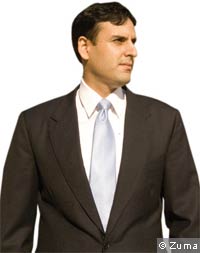Chicago calling

Simply sign up to the Business education myFT Digest -- delivered directly to your inbox.
Compared with other academic endeavours, MBA programmes are perhaps the least shielded from the “real world”.
For most of my one-and-a-half years at Chicago Booth, the world has been in severe economic turmoil, and the cacophony of insults hurled against MBAs has grown louder in inverse proportion to the stock market’s performance. With every Wall Street excess unearthed, every insider trading scandal exposed and every scam discovered, a convenient finger has pointed MBA-wards.
Yet my time at Chicago Booth has been a wonderfully transformative experience.
That is partly because I joined the MBA programme with a clear objective. In the recent past, the MBA package has embodied many “option” values: a shot at a lucrative job in investment banking, consulting, private equity, hedge funds; the option of switching careers; of a “fun” two years and meeting new people; and the chance to tap into an influential global network, to receive a significant brand endorsement.
However, the core value proposition of an MBA, I believe, is the learning. Stripped of everything else, the MBA is an academic endeavour, and I am glad I came to an institution such as the University of Chicago to pursue it.
There is no price that can be placed on the intellectual joyride that can be experienced in an academic setting.
No return-on-investment calculation can capture the thrill of learning, the spine-tingling excitement of discovery and the development of the mind. Deteriorating economic conditions might chip away at the other attributes associated with an MBA, but they will never dislodge the core learning aspect of the degree.
At the University of Chicago, professors take students to the frontier of social sciences, and give them the chance to see what lies beyond. Business and management, after all, is about human beings, and what better way to prepare for a career in management than through a multi-disciplinary approach that envelops economics, finance, sociology, psychology and other fields?
Many times, this approach has led me to question and re-evaluate my most strongly held beliefs. For example, I came to the University of Chicago in part because of my strong belief in free market economics. While here, I have come to believe that free markets work well in the ideal world of academic journals and textbooks but in reality, politics, agendas and networks play crucial roles too. Unspoken barriers and glass ceilings box us in, and we are bound by invisible ropes. The level playing field assumed in free-market economics does not always exist, and I have come to appreciate the theories of both Karl Marx and John Maynard Keynes.
I sense I am more conscious about the world, and grasp its complexities better than before I embarked on my MBA journey. The fact that most of my classmates had several years of diverse work experience before enrolling in the MBA programme has helped this process of learning and discovery. The classroom is a ready laboratory for dissecting and critically analysing theories and ideas, and work experience helps to keep the conversation real and prevents us from slipping into mere academic abstractions.
I hope business schools will continue to emphasise the work experience component of MBA applicants – I see it as pivotal to the nature of the learning process that is unique to MBA programmes.
Living in Chicago has been a treat. The city strikes a fantastic balance between all the cosmopolitan goodies one would expect from New York or London, where I have lived in the past, without the accompanying higher prices and congestion. Chicago has become a constant companion in my MBA journey, and certain events will always remind me of my Chicago days: Barack Obama’s historic presidential acceptance speech in Grant Park, and the announcement of Chicago’s loss of the 2016 Olympic bid.
When I leave this city, I will miss the picturesque drive along Lake Michigan, the panoramic view of the remarkable Chicago skyline at night from my apartment window, the firework displays at Navy Pier, eclectic restaurants that serve obscure cuisines from around the world, and much more.
But more than anything else, I will miss the rush of being in a classroom filled with the best minds engrossed in the activity of learning from each other.
Comments